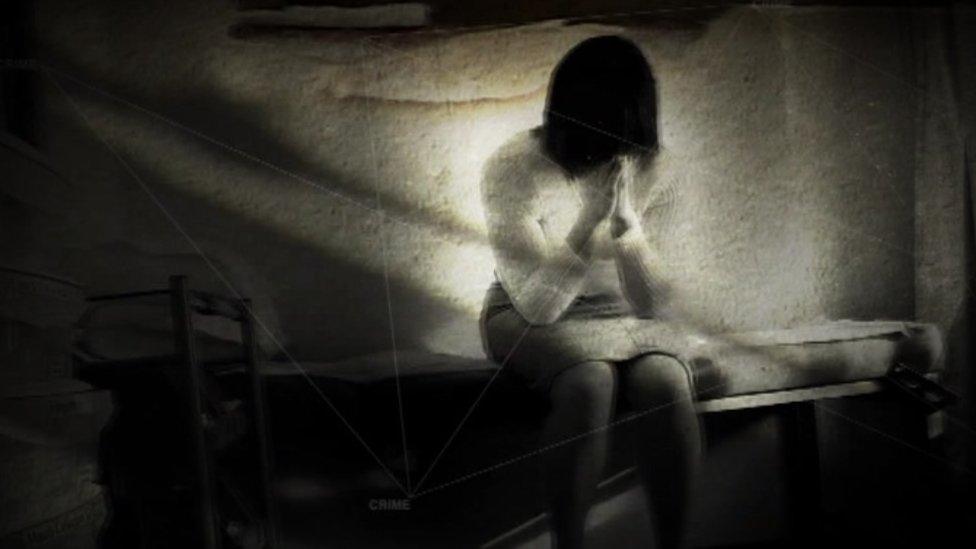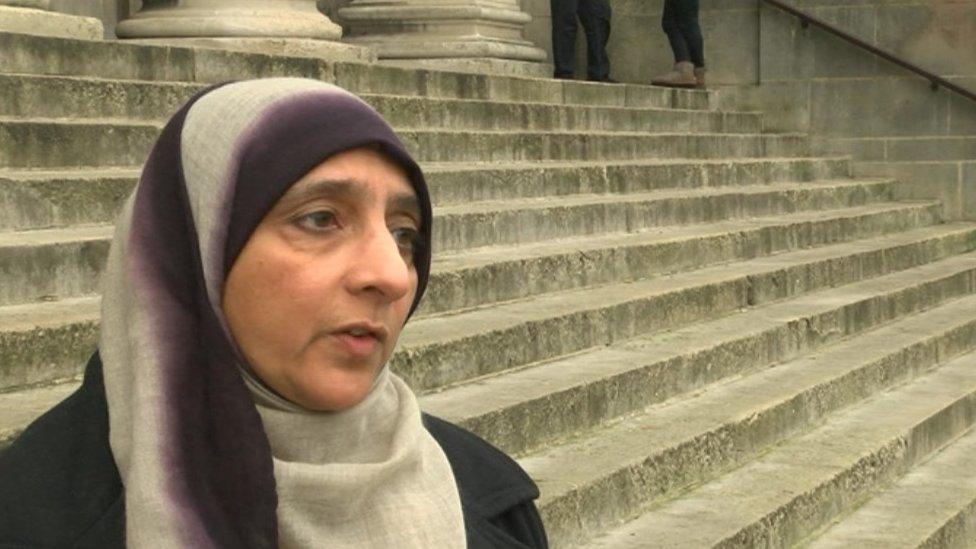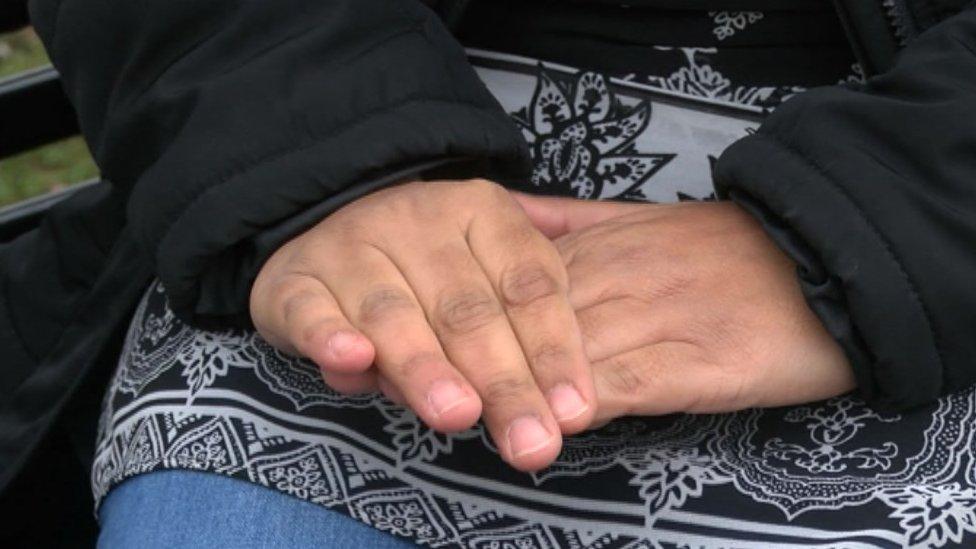Mental health therapy for Muslims embraces religion
- Published

Muslims with mental health issues could be helped by re-embracing their beliefs and religious teachings, it is claimed.
Traditionally, therapists have shied away from talking about religion as part of treatment.
But an NHS project based on research by Leeds University is "showing some individual signs of success".
Those behind the therapy say many Muslims do not get help because of stigma attached to mental illness.
'I was broken'
Samia, who is in her late 40s, has struggled with depression and is taking part in the project.
"I just felt like I had to constantly keep myself strong and put on a brave face. Deep inside I was actually broken," she says.
"When I actually fell apart, when I was at my lowest, I felt that there was something that I might have done to upset Allah, which is God."
Lead researcher Dr Ghazala Mir, of the university's Leeds Institute of Health Sciences, says this is a common concern among Muslims, who are under-referred for mental health treatment.
"This stigma does involve the idea that maybe if you need treatment, there might be something wrong with your faith identity in the first place," she says.
"Not only is there under-referral but the outcomes for people who do actually get referred are not as good as the general population."
NHS data assessing the people accessing psychological therapies found depression can be more chronic for British Muslims, who tend to have lower rates of improvement.

Professor Ghazala Mir says Muslims are under-referred for mental health treatment
The NHS has a statutory duty to provide culturally appropriate care for its patients, but Prof Mir claims it often struggles to do so.
"There are a lot of inconsistencies amongst practitioners about how they interpret culturally appropriate," she adds.
Dr Mir also believes many therapists are mistaken in not considering faith as part of someone's culture.
"We know that in Muslim populations people can get quicker results from faith-sensitive therapies that have been tested elsewhere in the world. They tend to use religion as a coping resource more than people in other religious groups."
Dr Mir has helped to create a new treatment, based on an existing form of cognitive behavioural therapy (CBT), external called behavioural activation. Following a successful pilot involving 20 patients, it is being provided by the NHS via a mental health charity in Leeds.
Patients on the course are asked if faith was part of their life when they were well.
Those who stopped their religious practice because of depression are re-introduced slowly using a self-help booklet, external, which highlights passages from the Koran that illustrate "even people with strong faith" can become depressed and that it does not mean God is displeased.

Samia says her treatment with a traditional therapist "felt like half a journey", but that when she started to use the new booklet her life began to change.
"There are some teachings in here that help me reflect that the Koran actually acknowledges there is depression, there is grief, there is hardship upon you," she says.
"God is actually giving me those tools. So it really strengthened my Iman, which is my faith.
"I'm happy that I can live my life with my religion and that I've got the support of teachings from the Koran."
Therapists left trial
Richard Garland runs the team at the Touchstone Mental Health Charity which is providing the treatment to some of its Muslim clients.
He says several therapists left the initial trial of the treatment for a number of reasons.
Some were worried about imposing religion on clients, others said they did not know enough about Islam, were resistant to the idea of using religion in therapy at all, or felt religion was not a helpful framework for treating depression.
However, Mr Garland claims this type of religiously-centred treatment can help.
"What has been produced here is a type of therapy that takes full account of people's faith, this particular faith, and links it to people's value framework. So it's a very practical application of someone's belief system."
The people behind the treatment say they hope it can be rolled out across the country and be extended to other faith groups.